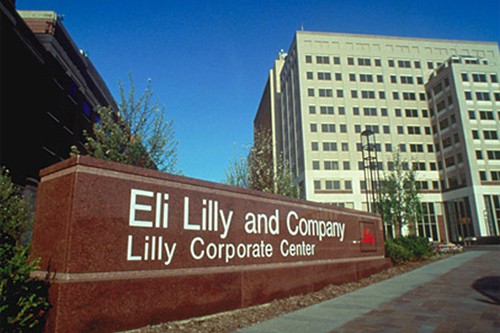
Lilly has stopped a phase II trial of Alzheimer’s disease drug candidate LY2886721 after some patients experienced abnormal liver function tests suggesting the drug may be unsafe.
The company stressed however that at the moment it does not consider the liver effects to be a consequence of the mechanism of action of the drug. LY2886721 is a beta secretase 1 (BACE-1) inhibitor, a new class of treatment for Alzheimer’s patients.
In a statement, Lilly said it “continues to be interested in developing BACE inhibitors for the benefit of patients with Alzheimer’s disease”, adding that it will review the data before deciding on the fate of the LY2886721 development programme.
BACE is an enzyme involved in the conversion of amyloid precursor protein (APP) into amyloid beta, preventing the formation of amyloid plaques that are a hallmark of Alzheimer’s disease. Interest in inhibitors has grown in the wake of disappointing trials involving drugs that try to break down already-present plaques, including Lilly’s own solanezumab and Pfizer’s bapineuzumab.
One interpretation of the solanezumab and bapineuzumab studies is that targeting amyloid earlier in the course of Alzheimer’s may be the key to effective treatment. The notion was backed up by the discovery by researchers at deCODE Genetics last year that a naturally-occurring mutation in APP actually cuts amyloid production and the rate of cognitive decline in elderly patients.
BACE-1 inhibitors, which can be administered orally and selectively target the amyloid pathway in the central nervous system, have emerged as strong candidates to test that hypothesis, and it is interesting to note that the protective APP mutation discovered last year seemed to make the protein resistant to the action of BACE.
Either way, the fact that they will be given to a largely healthy patient population makes long-term safety a prerequisite.
There are a number of other BACE inhibitors coming through the clinical pipeline for Alzheimer’s disease, notably Merck & Co’s MK-8931 – which started phase II/III trials towards the end of last year – as well as Eisai’s E2609, Roche’s RG7129 and AstraZeneca’s AZD3293, which are in early-stage testing.
Merck presented findings of a multidose phase I study last year that showed MK-8931 reduced amyloid levels in the cerebral spinal fluid (CSF) by more than 90 per cent in healthy volunteers.
Another emerging class of Alzheimer’s therapeutic are the gamma secretase inhibitors, although there have been a couple of high-profile failures among these as well, including Lilly’s semagacestat and Bristol-Myers Squibb’s avagacestat.




